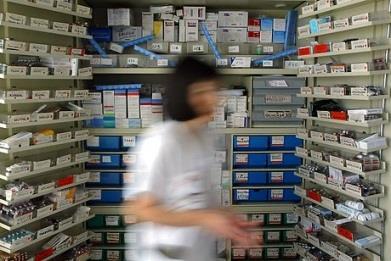Bold and innovative healthcare solutions can alleviate the growing pressures on the NHS, but we must have the correct processes in place to ensure they work, says Andrew Willetts

As highlighted in the recent NHS Five Year Forward View, to safeguard the future of the NHS we must move towards a truly integrated patient care model.
By working together we can make this vision a reality, but we must also ensure that transfer processes between secondary, primary and community care are watertight.
‘There’s an opportunity to improve the continuity of care after hospital discharge and change the face of healthcare forever’
There have been numerous attempts to improve aspects of the discharge process relating to medicines in the UK that have not made any sustainable difference to patient safety or quality of care. However, we hope to address this issue with the UK’s first Centre for Pharmacy Innovation.
Launched in November, the centre is a unique research collaboration between Royal Liverpool and Broadgreen University Hospitals Trust, Liverpool John Moores University and LloydsPharmacy.
Through collaboration, there is an opportunity to improve the continuity of care after hospital discharge and change the face and quality of healthcare forever.
- Trusts can integrate pharmacy into community care
- Visit the Innovation Network channel for more best practice
Lasting change
We know from experience that positioning community pharmacy within a hospital setting works, and works well. Royal Liverpool alone has seen outpatient prescription dispensing times fall from an average of 30-40 minutes to an average of 12 minutes since 2009.
‘The first stream of research aims to determine an innovative hospital discharge process’
The collaboration’s first stream of research – entitled Investigating Models of Care in the NHS: Patient Transfer to Primary Care on Discharge from Hospital – aims to determine an innovative hospital discharge process that provides safe, high quality and effective transfer for patients.
Improving processes
Once developed, the new model will be piloted at Royal Liverpool and LloydsPharmacy branches across the Liverpool region and evaluated, with the objective of improving future processes in all hospitals and pharmacies across the UK.
The project will also support the development of a postgraduate education and training programme to better equip community pharmacy teams with improved clinical skills to advise patients about their health – from diabetes to asthma and chronic obstructive pulmonary disease – providing a resource for the wider NHS community and pharmacy profession.
‘Pharmacy can improve the quality of care provided and alleviate pressure and costs to the NHS’
With pressure on the NHS continuing to rise and patient safety increasingly important, there is an opportunity for pharmacy to improve the quality of care provided and to alleviate pressure and costs to the NHS by providing hospitals with an approved clinical pathway.
Specifically, we can improve the quality of medicines management for patients, decrease medicines waste and maximise clinical input along the transfer of care pathway.
The benefits of joint working to improve patient care are extensive, and the fruits of what we as health professionals can achieve together are plentiful. We see this first research project as a starting point in a long future of creating academic partnerships that will drive excellence in healthcare.
- Find out more about the Centre for Pharmacy Innovation
Andrew Willetts is project lead and healthcare solutions director of LloydsPharmacy, Celesio UK























1 Readers' comment